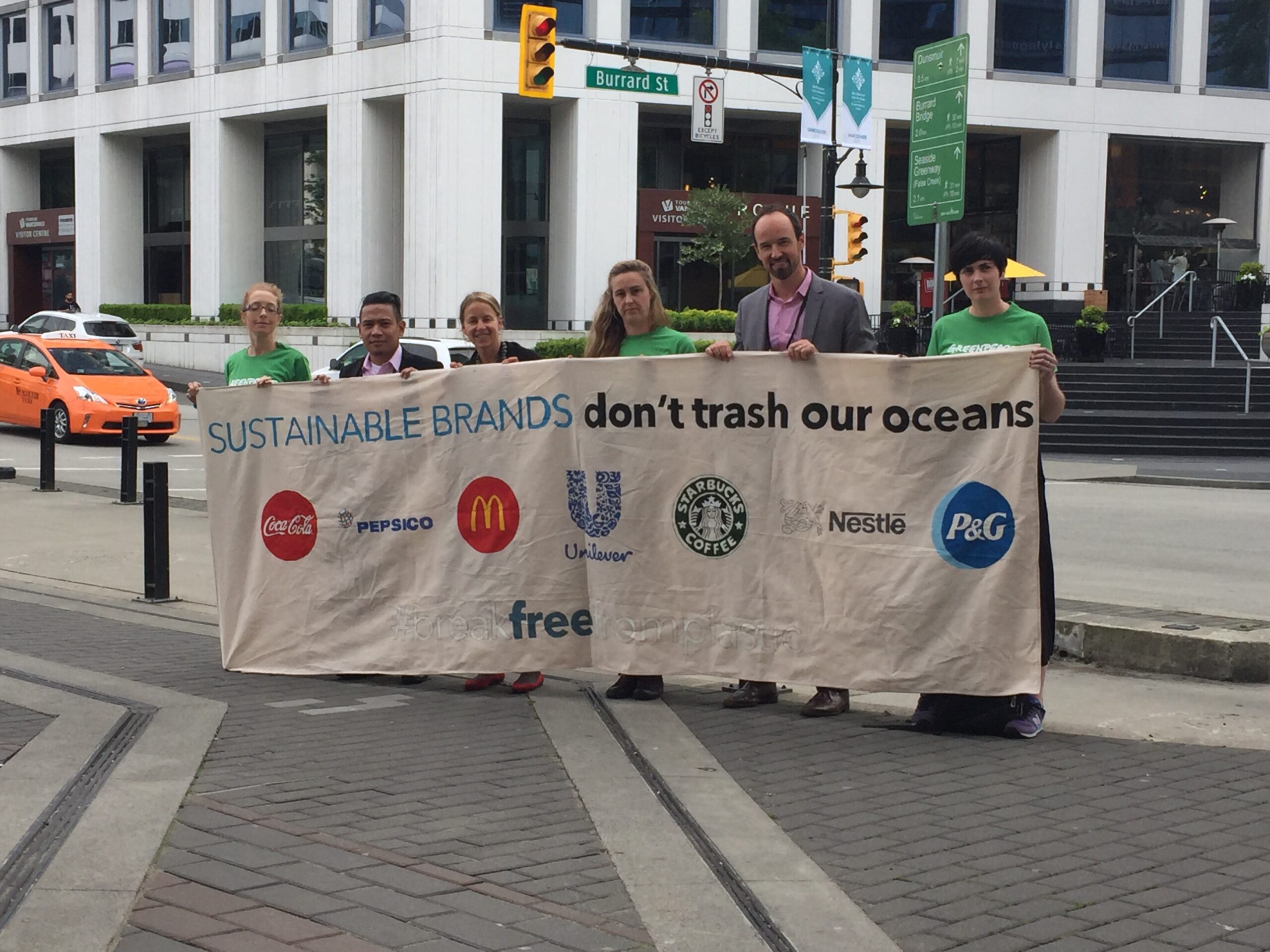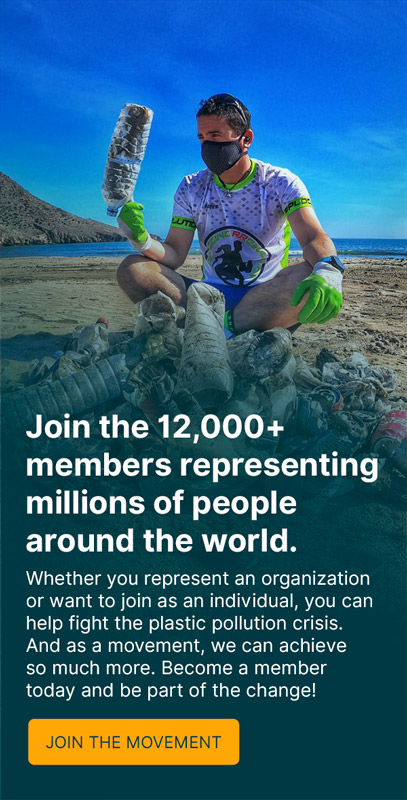FOR IMMEDIATE RELEASE
CONTACT Jed Alegado jed@breakfreefromplastic.org, Claire Arkin, claire@no-burn.org
Vancouver, 6 June 2017—At the Global Sustainable Brands Summit today, evidence from brand audits exposed top global manufacturing companies Pepsi, Unilever, Nestle, and Coke amongst the companies most responsible for plastic pollution in India, the Philippines, and Indonesia.
Speaking at the summit, Froilan Grate of the environmental non-profit GAIA, or the Global Alliance for Incinerator Alternatives, presented evidence that more than 50% of all single-use plastic waste recovered from selected zero waste cities and clean-up sites in the Philippines, Indonesia and India is made up of product packaging from leading brands. This evidence, he said, shows that brands are doing too little too late to remediate their historical and ongoing pollution. The panel, entitled, “Stopping Plastic Pollution through Design Change and Circularity,” also featured Anna Cummins of 5Gyres and Matt Prindiville of Upstream Policy, all three representing the #breakfreefromplastic movement.
“As the biggest producers of throwaway plastic packaging, brands carry the heaviest responsibility for the plastic problem,” said Grate. “Plastic packaging from brands is endangering wildlife and the health of the oceans, and poisoning the water we drink and the food we eat. But the current commitments on plastic reduction and package redesign means business as usual for at least the next decade. So far corporations have given us lip-service when what is needed is urgent and drastic reduction.”
More than a dozen environmental groups in the three countries conducted waste and brand audits in the past 12 months. The latest audits were conducted in May across 18 states in India as a lead-up to the World Environment Day, which India is hosting this year. Waste and brand audits are conducted prior to actual implementation of Zero Waste strategies to gather data and help understand the types and amount of waste generated by households and commercial establishments. Brand audits complement waste audits by categorizing and counting branded residual plastics to pinpoint the main producers of the waste.
The results of all the audits are remarkably similar. Branded product packaging from multinationals topped the list of the most commonly-found plastic waste, with multilayered plastics accounting for nearly half of branded plastics audited. Across the three countries, a total of 72,721 pieces of branded plastic waste were picked and analyzed. Close to 75% was food packaging. The rest was household and personal care packaging.
In India, PepsiCo is the top multinational polluter, followed by Perfetti van Melle and Unilever. Other multinational corporations in the top 10 list are Coca-Cola and Mondelez. In audits conducted in multiple cities in the Philippines and Indonesia, Unilever, Procter & Gamble, Nestle, PT Torabika, Colgate-Palmolive, and Coca-Cola are among the top 10 multinational polluters.
Many of the multinational brands identified were present at the Sustainable Brands summit. Instead of focusing on reducing their product packaging, these companies have made weak commitments with a heavy emphasis on recycling, including chemical recycling, which is still unproven. Groups in the #breakfreefromplastic movement, including GAIA, have noted that these commitments are woefully inadequate, and that recycling alone is not enough to stem the tide of plastic pollution.
GAIA has also noted that mainstream discussions on plastic waste have shifted the blame on the shortcomings of waste management in Asia, and to human behavior. Some multinational brands are asking cities to implement better waste collection and consumers to be “more responsible,” and are supporting harmful approaches such as burning plastics in incinerators and cement kilns.
“Plastic pollution is the most visible manifestation of how brands have externalized the environmental and human costs of their marketing activities,” Grate said. “We are challenging brands to take accountability for the pollution they cause. As a first step, they need to disclose the extent of their historical and current plastic packaging, drastically reduce plastic production, and redesign packaging and delivery systems. Corporations’ failure to acknowledge accountability and provide immediate action means missing the biggest, quickest and most important solution to stop plastic pollution.” ###
NOTES:
Find out more.
Read the short report.
Watch the video.



